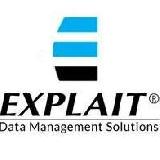What our clients say
-

「ウェブエージェンシーである私達には、顧客に共有ホスティングを提供している間に弊社のサーバーに何かの問題が生じても彼らの独立したサービスがそのままでいられることを保証するのは非常に大切です。それでClouDNSにしました…」
Grigor Yosifov
CEO @ Forci Web Consulting Ltd
-

"Your customer service is at the top of my list, keep up the good work!"
Sami Sälö
Chairman of the Board @ Salskea Oy
-

「皆さん、大変お疲れ様です!
ClouDNSの無料のDNSサービスを利用して今年4年になりますが、今まではずっとゼロのダウンタイムなのです…」Iskren Slavov
Founder/Full Stack Developer @ Wish Development Ltd
-

「ここのサービスは最高でお勧めするしかないんです!
ホスティングや管理については:自分が必要とするどんだけ数の多く、さまざまな利用が可能です(DNS, SSL等々です)。」Patrick Jud
-

「2014年以来ClouDNSのサービスを使っていますが、一言で言うと本当に最高です。当社が私や私の顧客に提供するサービスは比較できないくらい素晴らしいです。DDoSサブスクリプションをはじめ、本当に価値の高いサービスばかりです。」
Daniel Ives
CEO @ Ives Network t/a Daniel Ives
-

"Working with the team at ClouDNS has been very supportive. My experience has been excellent. The team is attentive, knowledgeable and skilled when it comes to Cloud DNS, and I can recommend their professionalism."
J. May
Marketing Chief @ Amaze Communication
-

"Outstanding Service. I'm using ClouDNS since 2015 for personal domains. In 2018 moved the domains of the company were i work and we use your services since then. Would never though to go back!!!..."
Stanislav Filavtev
-

「本当に最高のサービス:使いやすくてきれいなコントロールパネルに100%の稼働時間、それに値段もお得です。」
Vadim Mikheev
-

「ClouDNSを利用して、非常に嬉しいです。インターネット全体的で最高のDNSプロバイダーだと言って過言ではありません。ここの顧客サポート、値段や様々な特徴は一流なのです。」
Christopher Nofal
Manager @ DreamLab LLC
-

"Got frustrated with the lack of knowledgeable support at GoDaddy, searched for alternate DNS providers and found ClouDNS. Could. Not. Be. Happier..."
Phillip McMahon
-

「ビットコインで支払いできるのが可能なことに特にありがたいです。国の銀行システムが破壊されたこの時期にウクライナの顧客に対してとても大事なメリットです。」
Mikhail Chutowski
-

「親切なサポートに相当な通信:最高のサービス!
最高のサービスはまさにこれだ。」Steven Pearson
-

"ClouDNS provides the best in class DNS services. Prior to ClouDNS we were hosting and managing our DNS servers which was not core to our business so when we compared alternatives ClouDNS was the right fit..."
James Aker
President at Explait @ EXPLAIT, LLC
「ClouDNSは凄いです:この間使い始めて、今までずっとうまく行っています。素晴らしいDNSサービスに対するソリューションは心からありがたいです。」
Helinton Dias
@ CloudExperts Consultoria